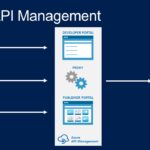People likely accept cloud storage to save their data with a high-security system in the technological revolution. Several organizations and companies accept the aspect for the better convenience of their data management. If you also avail of such a system, you should know about the pros and cons of the cloud system.
Being fully online, cloud and remote devices are highly risky. People often are unaware of the risk factors associated with them, which negatively impact the company’s reputation. You may face a huge financial crisis if any malfunction happens with your data management system.
Therefore, you must know how to protect the data across cloud and remote devices. Here are some tips which you can use to protect data for better convenience.
Tips to protect data across cloud and remote devices
Use an encrypted cloud service
An encrypted cloud service can protect your files in the cloud or any remote device like a computer does. The process ensures that the service provider and the service administrators can’t access your data, giving you a reliable platform to store your files. Moreover, it prevents the interference of any third party in your data storage.
Read agreement carefully
While taking service from any cloud provider, you must read the user agreement carefully before availing of the service. The user agreement contains some vital information, like how your data can be safe in the system and if you can use or sell information by signing up on any site. You better not sign up for anything which is not entirely understandable.
Moreover, your cloud service provider may change the privacy policies often from which you can get a notification in email or any other messaging form. You must be up to date regarding the updating of privacy policies to save and secure the data across the cloud or any remote devices.
Set up desired privacy setting
While availing of cloud service from any cloud service provider, you must set up the privacy according to your system to save your files from theft. You must ensure that you are not sharing any information with your service provider via the applications.
Additionally, you must know how long the service stores your files for. You should also know the type of info it can extract from your device. After conducting a successful privacy set-up, you must check and re-configure the system every few weeks.
Using strong passwords
No method can beat this to ensure your files’ ultimate security across clouds or remote devices. Using strong passwords in accounts with private information is essential for the entire security. A survey says that over 75% of theft and hacking happen due to weak passwords.
To make a strong password, you can take the help of an expert. Initially, you must follow some rules to make a strong password.
- The password should not be below eight characters.
- Don’t use informative characters like birthdays, names, residential place names, or any special occasion.
- Mix up characters with capital, numeric, symbolic, etc.
Installing operating system updates
Several times, you may ignore the update notification for your operating system. But it can impact the whole scenario of your data safety. Installing an updated OS version frees you from any bugs that may harm your data if unchecked. Therefore, you must update the system software to protect data across remote devices.
Sometimes, the timing of the software update is inappropriate, and you may not want to install it at that time. However, ignoring such software updates may lead to severe inconvenience which you may regret further.
Use strong anti-virus and anti-malware programming
As cloud storage is based on the internet, your device must have quality anti-virus or anti-malware programming. These programs block unwanted URLs and sites, protecting your cloud-based data. Some programs allow you to access remote wipes, device location service and backup policies, giving you better convenience.
Conclusion
In conclusion, you must follow the tips mentioned above for better convenience. Moreover, you must secure your private information, which sometimes is more favourable for hackers than cloud security. You better inform your cloud provider if you notice any suspicious behaviour.









